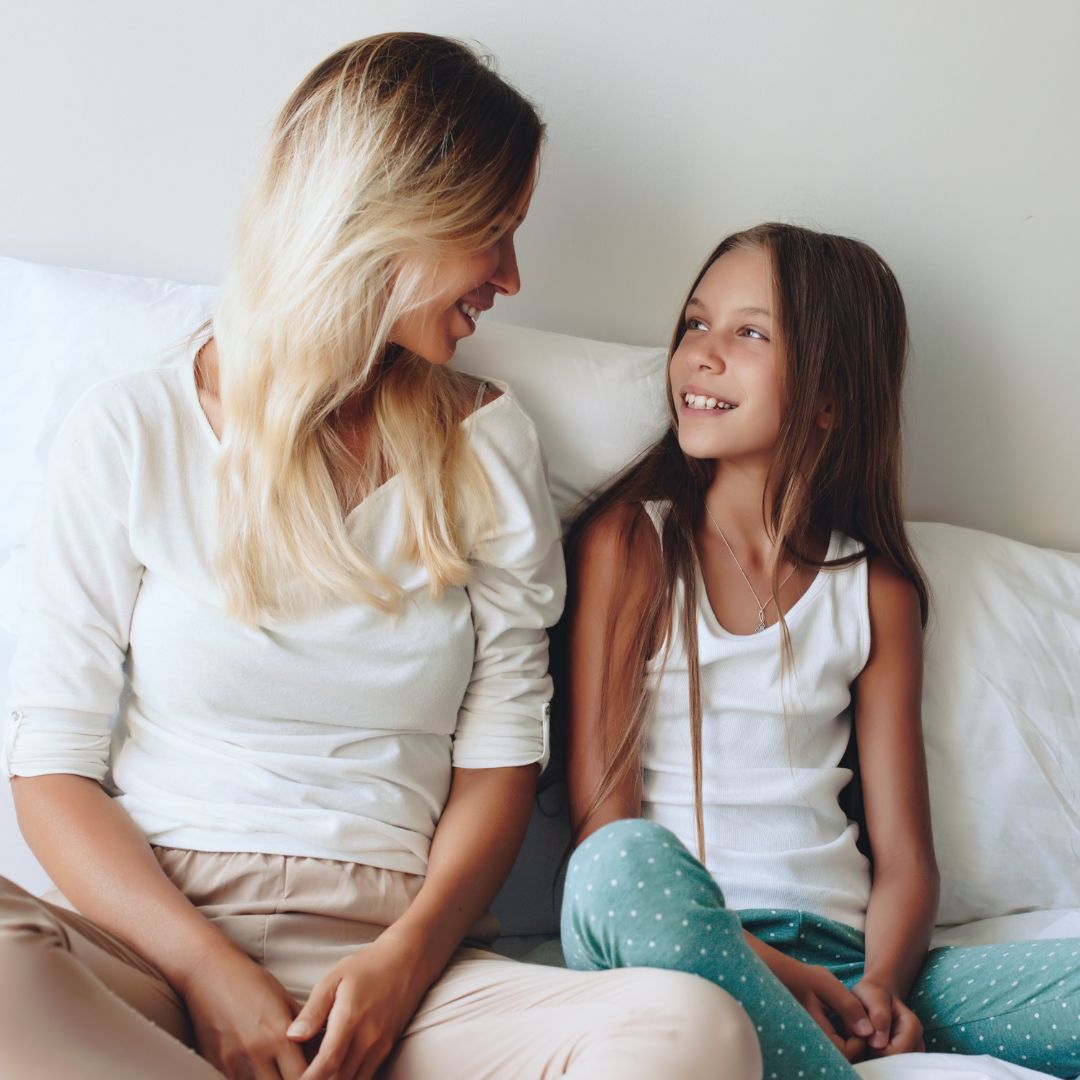Parents! October is “Let’s Talk” Month, a national campaign encouraging parents to talk to their children about sexual and reproductive health.
Talking about sex is more than just a one-time conversation – it’s an ongoing dialogue you have throughout your child’s life.
WHY?
Parents and trusted adults play an important role in sexual health decision-making. Adults in youths’ lives have a strong influence in supporting adolescent sexual and reproductive health.
HOW?
Start talking early. Conversations that contribute to sexual health aren’t all about sex. Start talking in the early years about proper names for body parts, as well as concepts like good touch/bad touch and respect for others.
Talk often. Try to maintain a series of ongoing, age-appropriate conversations rather than one big “the birds and the bees” talk.
Use teachable moments. When something happens on TV or in a song lyric, use it as an opportunity to say, “What do you think about that?” or “How do you think you’d deal with that situation?”
Don’t assume. Just because your child is asking you a question doesn’t mean they are doing the thing they’re asking about. Young people are exposed to a lot of information and words and concepts. Their curiosity about what those things mean is natural.
Keep a positive tone. Remember that the information you provide will stick with them for a lifetime. Be careful not to say things that will make them feel bad about their bodies, avoid protecting themselves with condoms or birth control, or avoid communicating about sex when they are older.
WHAT SHOULD WE TALK ABOUT?
Here are questions for parents to consider themselves:
- What messages did you receive about sex, gender, and your body?
- What did you learn from your family, your community, and your peers? Were these messages positive or negative? Were these messages hurtful or helpful?
- What is the same or different about your experiences compared to the experiences of young people today?
- What do you wish you would have known when you were their age?
WHAT SHOULD THEY KNOW?
Children 5-8 years old should have a basic understanding:
- about the social conventions of privacy, nudity, and respect for others in relationships.
- of puberty, as many children will experience some pubertal development before age 10.
Tweens should know:
- the facts about sex and reproduction. They should understand how someone gets pregnant and how to stay safe.
- what makes a healthy relationship vs. a bad one.
- that there are different sexual orientations.
- whether depictions of sex and sexuality in the media are true or false, relaistic or not, and whether they are positive or negative.
Teens need to know:
- They will have to make decisions about sex, and that they have the right to say “no” to anything they are not ready for.
- There are many different activities that come under the label “sex,” not just intercourse.
- There is only one sure way to prevent pregnancy, adn that is by not having intercourse. If they do have intercourse, many methods of contraception are very effective.
- They can go to the doctor for contraception or other sexual health care and it can be kept confidential.
- They have options if unprotected intercourse occurs, such as testing and treatment of sexually transmitted infections.
- Condoms must always be used to prevent sexually transmitted infections. This is true not just for vaginal intercourse, but also for oral and anal sex.
NEED HELP?
Use these books to help you get the conversation started! All are available either at our library or can be requested for you from other Berks County Libraries through the Interlibrary Lending Program.
- Boys & Sex: Young Men On Hookups, Love, Porn, Consent, And Navigating The New Masculinity by Peggy Orenstein
- Girls & Sex: Navigating The Complicated New Landscape by Peggy Orenstein
- The Family Book by Todd Parr
- Where Did I Come From? by Peter Mayle
- What’s the Big Secret? by Laurie Krasny Brown
- Amazing You!: Getting Smart About Your Private Parts by Gail Saltz and Lynne Avril Cravath
- I Said No! A Kid-to-Kid Guide to Keeping Private Parts Private by Kimberly King and Zack King
- Who Has What? All About Girls’ Bodies and Boys Bodies by Robie H. Harris
- Who Are You? A Kid’s Guide to Gender Identity by Brook Pessin-Whedbee
- Sex is a Funny Word: A Book About Bodies, Feelings and You by Cory Silverberg
- Asking About Sex & Growing Up: A Question and Answer Book for Kids by Joanna Cole
- Tell Me About Sex, Grandma by Anastasia Higginbotham

LEAVE A COMMENT
Comments